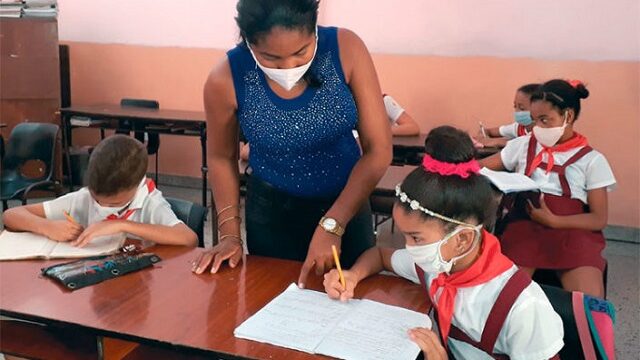
In the case of Cuba, education is one of its key pillars, as well as a vital commitment of the State to its society. and this precept is fulfilled because there is close coordination between the policies and strategies implemented by the country to ensure the educational development and economic and social progress it requires.

This is favored by a strong engagement of society at large and the awareness that education is a task in which everyone participates in one way or another, and therefore should also be the responsibility of all, although it falls on the Ministry of Education the state duty of managing, guiding and controlling education at all levels.
This declaration of principles on the importance of education would not be enough without the endorsement of legal support.
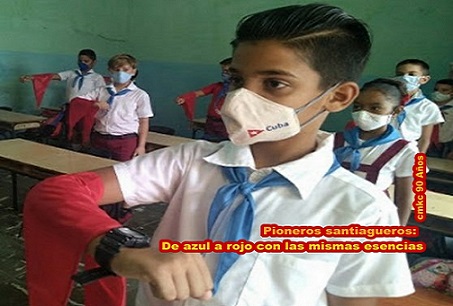
Thus, the Constitution of the Republic of Cuba establishes in several articles the fundamental principles and objectives of education, according to which the “Socialist State, as the power of the people […] shall ensure […] that no child be left estudos avançados without schooling, food and clothing; that no young person be left without the opportunity to study; that no one be left without access to the studies, culture and sports…”, while “guiding, fostering and promoting education, culture and science in all their manifestations”.
Therefore, besides an elementary duty of humanity and social justice, edu-cation for Cuba is also an imperative of the present time and the safety of its fu-ture in the preparation of new generations, so as to ensure the continuity of the revolutionary work undertaken more than half a century ago.
Hence the main goal of the Cuban effort to pursue the continuous improvement of education, with a view to fully meeting its objectives, which today leads to the implementation of major transformations without schooling, food and clothing; that no young person be left without the opportunity to study; that no one be left without access to the studies, culture and sports…”, while “guiding, fostering and promoting education, culture and science in all their manifestations”.
It would be impossible to objectively recognize the value of the present state of Cuban education, its major achievements and transformations without a comparative analysis of the current situation with that which existed before the Revolution.
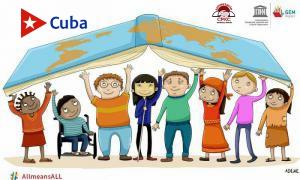
Principles of educationCoverage of education.
If education is a right guaranteed by State guaran-tees to its people as a just aspiration of society, the government has to guarantee massive education to enable the access of all children, youth and adults to the System, which means that it should be comprehensive in all types and at all levels of education, without regard to age, gender, ethnic or religious differences.Study-work combination.
It is a guiding principle of Cuban pedagogy that merges two essential goals. on the one hand, to develop in students the love for work as a fundamental value of a society of workers such as ours, to create in them the awareness of producers of social and material wealth; and on the other, to integrate the student in the productive process and socially useful work in a participatory and balanced way, so to promote in them, from early on, values as essential as responsibility and industriousness.
Both goals are focused on the school, on the vocational training process that takes place inside and outside the classroom, by which students share, through work, the rules of conduct and values related to the development of their consciousness as producers that will enable them to internalize the culture of work as education of the individual in its broadest sense.
The application of this principle is present in all the Educational System adjusted to the characteristics of each educational subsystem and to the social needs of development itself. Its roots lie in Martí’s conceptions and in the most advanced contemporary pedagogical ideas.
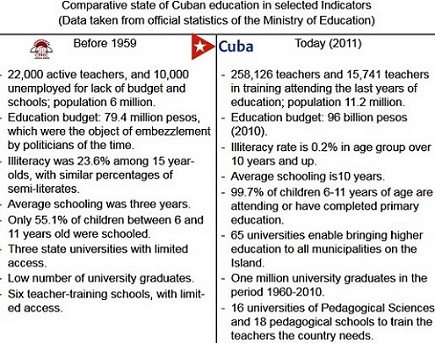
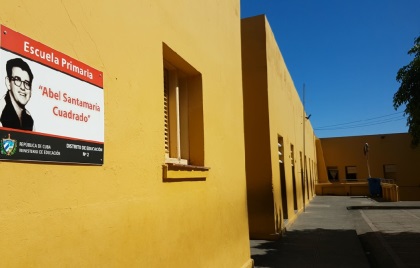
Co-education.
If Cuban education is comprehensive, it has to ensure equal rights to all citizens, regardless of gender, thus guaranteeing the access of girls, adolescents and young women to any kind of education and school level, with equal development opportunities.
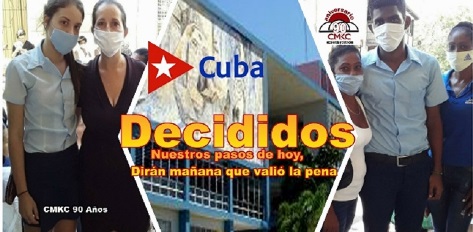
Free of charge.
Cuban education is free of charge in the entire System, and the State has the responsibility of ensuring teachers the educational facilities and means necessary for their full development, including graduate studies.
Democratic character. Family, community and society as a whole are encouraged to take an active part in all aspects related to education as individuals, but also through social, professional and scientific organizations to which they belong, in which the opinions and recommendations arising from the debate are a starting point for the improvement of school curricula and programs, as well as for the training of teachers.
Particularly meaningful is the work developed by the School Councils and Childhood Circles, which are an important factor of educational influence and a decisive force to support institutional management by contributing to the advances and results of education.
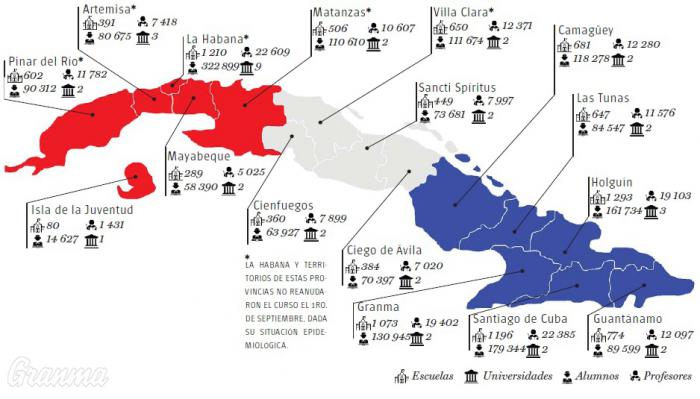
Student organizations, in their daily activities and in congresses analyze and discuss the issues that affect their development and propose solutions to be submitted to the educational authorities.estudos avançados























